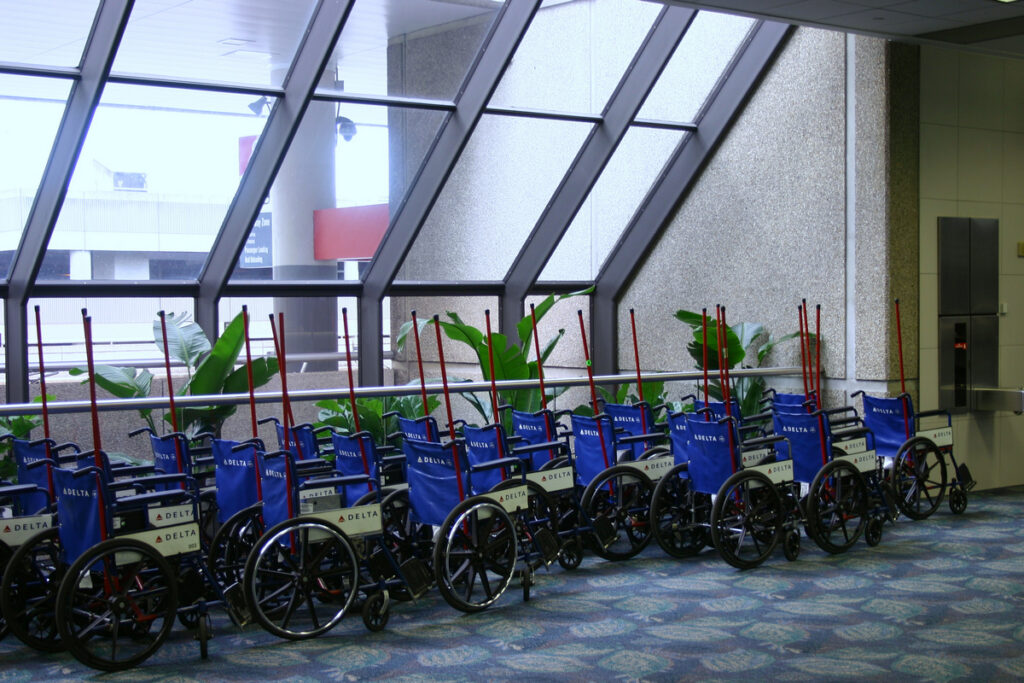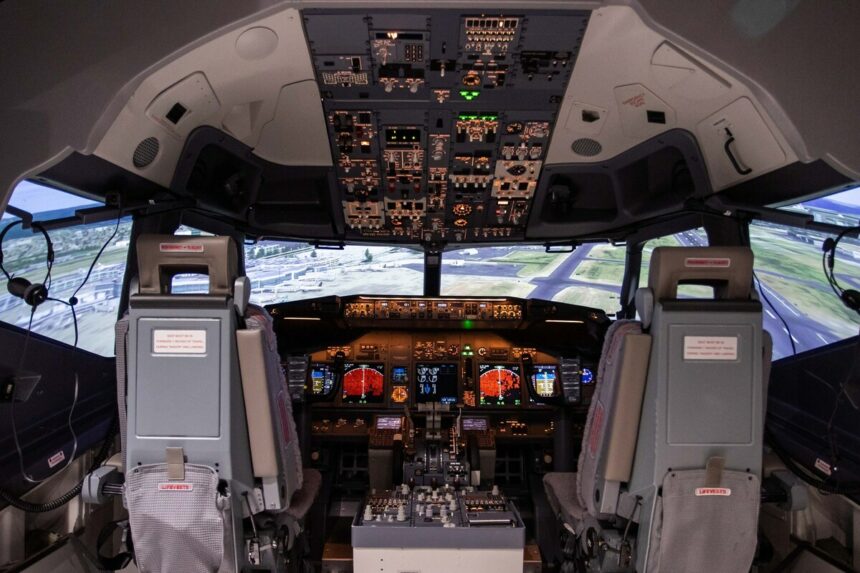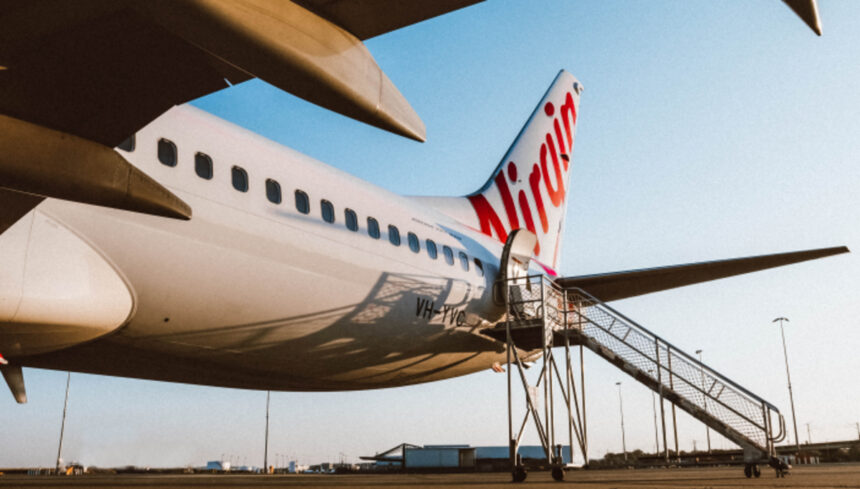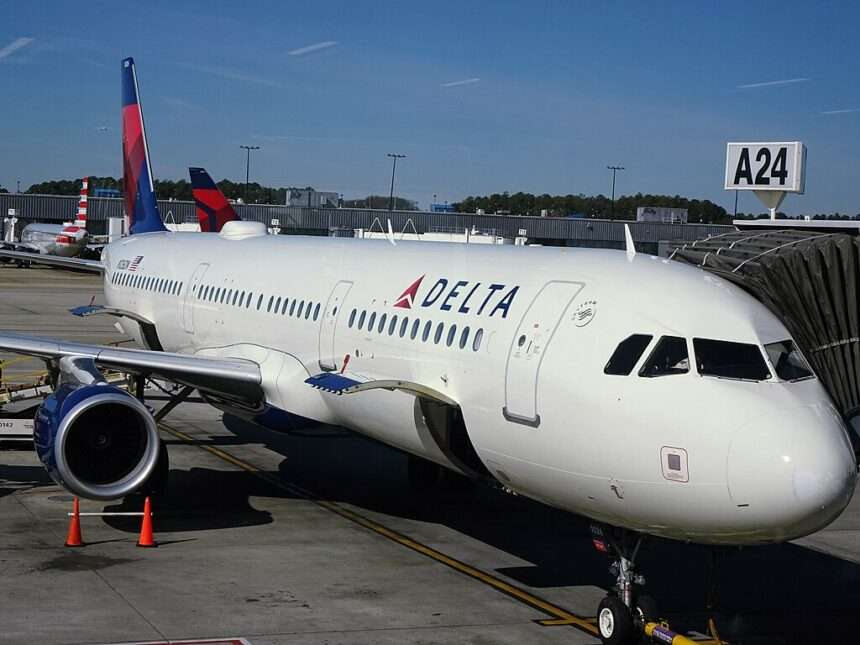Yesterday, US Rep. Greg Stanton and Dina Titus of Nevada introduced the Working to Help Ensure Equity for Lithium-ion-powered Chairs (WHEELChairs) on Airplanes Act.
The purpose of the Act is to prevent passengers with disabilities from being erroneously and arbitrarily denied boarding.
About the Act
The WHEELChairs on Airplanes Act would codify current federal rules into statue and allow wheelchairs and mobility devices powered by lithium-ion batteries on commercial flights.
It would also block airlines from adopting policies that are more restrictive than the Federal Aviation Administration policy.
Currently the FAA has determined that wheelchairs containing lithium-ion batteries are considered safe for air travel.
In practice however, passengers with disabilities continue to face horrendous flying experiences because of more strict airline restrictions on these wheelchair batteries. In some instances, airlines incorrectly and inconsistently enforce the FAA rules.
Similar legislation was introduced last Congress by now-retired Rep. Jim Langevin of Rhode Island, whose own experiences using a wheelchair during air travel led him to push for protecting the rights of passengers with disabilities.
“Americans with disabilities should have confidence that when they purchase a ticket, airlines will follow federal rules. Arbitrarily denying disabled passengers boarding is wrong, plain and simple,” Rep. Greg Stanton said.
“This legislation will make sure disabled passengers can fly safely and with dignity.”
“Barring anyone from boarding an airplane because they use a wheelchair or mobility aid is unacceptable, and we can take action to prevent it from happening,” Rep. Dina Titus said.
“Expanding air travel safety and access is only common sense, and my legislation’s simple fix would make a huge difference for travelers with disabilities.”
Transportation of passengers with disabilities
The transportation of passengers with disabilities, including wheelchair users on flights, is governed by the Air Carrier Access Act (ACAA) in the United States.
This law broadly requires that airlines provide accommodations to passengers with disabilities, including allowing them to bring their wheelchairs aboard flights.
Here are some key considerations with regards the carriage of wheelchairs aboard commercial flights in the USA:
- Airlines must allow passengers to bring their wheelchairs on board if the wheelchair can be stowed in the cabin or cargo area without causing any safety or operational issues. If the wheelchair cannot be stowed on board, the airline must transport it as checked baggage.
- Passengers are not charged extra for transporting their wheelchairs on a flight.
- The airline must provide assistance to passengers with disabilities in boarding and disembarking the aircraft, as well as during the flight.
- Passengers should notify the airline in advance of their travel if they require any special accommodations or assistance.
- The airline may require that the wheelchair be secured with a seatbelt or other device during the flight to ensure it remains in place.
- If the wheelchair is transported as checked baggage, the airline must make every effort to return it to the passenger in the same condition it was received.
In 2020, the Department of Transportation (DOT) issued a final rule that updated the Air Carrier Access Act (ACAA) regulations to improve the accessibility of air travel for passengers with disabilities. Some of the key changes included:
Airlines must now allow passengers to preboard if they have a disability that requires extra time or assistance to board the aircraft.
Airlines must allow passengers to use certain types of portable oxygen concentrators on board the aircraft, as long as they meet certain requirements.
Airlines must provide training to their employees on how to assist passengers with disabilities, including how to handle and stow wheelchairs.
Airlines must provide accessible lavatories on new single-aisle aircraft with more than 125 seats.
Airlines must make their websites and mobile apps accessible to passengers with disabilities, including those who use screen readers.
These changes are designed to improve the air travel experience for passengers with disabilities and ensure that they have equal access to air travel. The DOT also plans to issue additional rulemaking in the future to address other accessibility issues, such as in-flight entertainment and communications.









